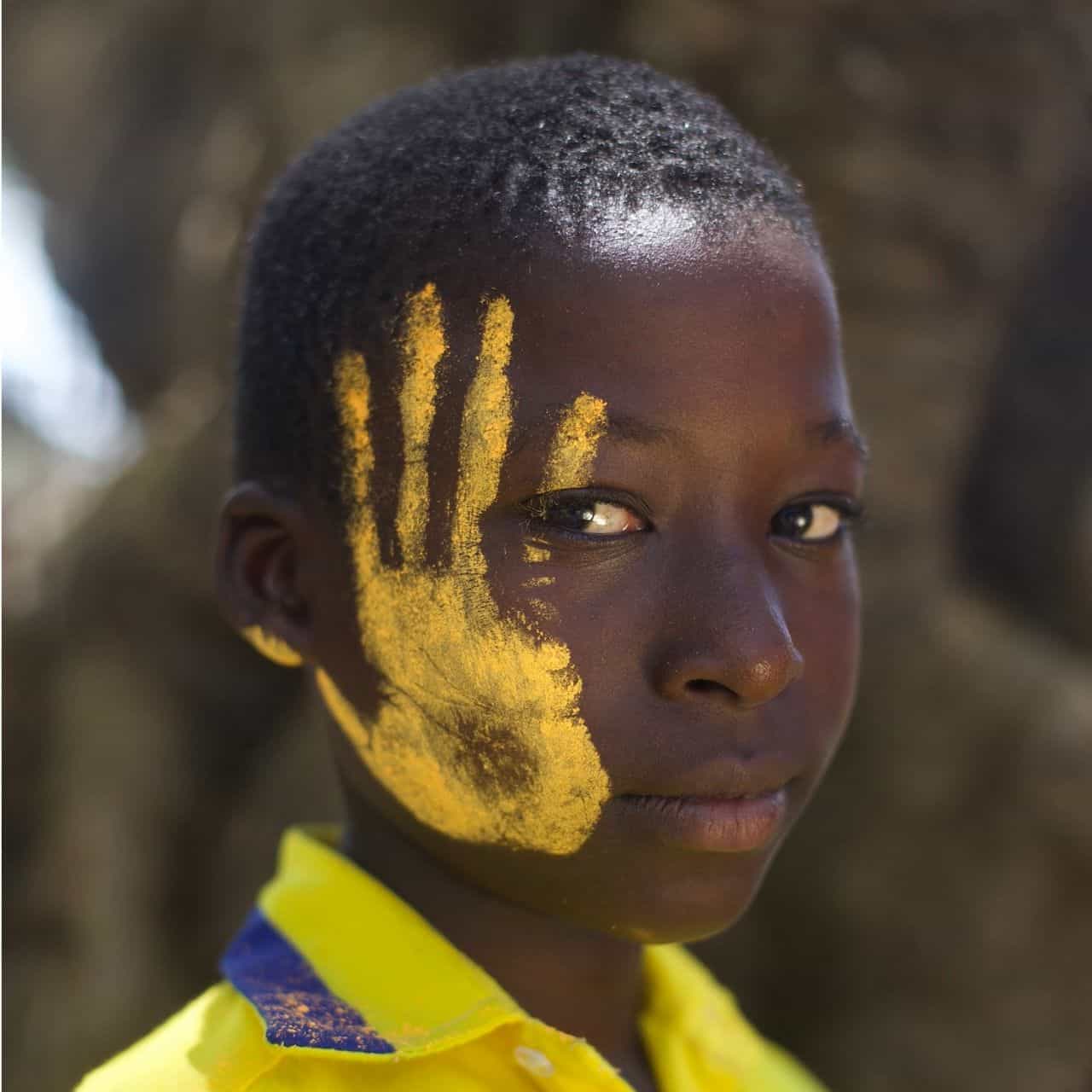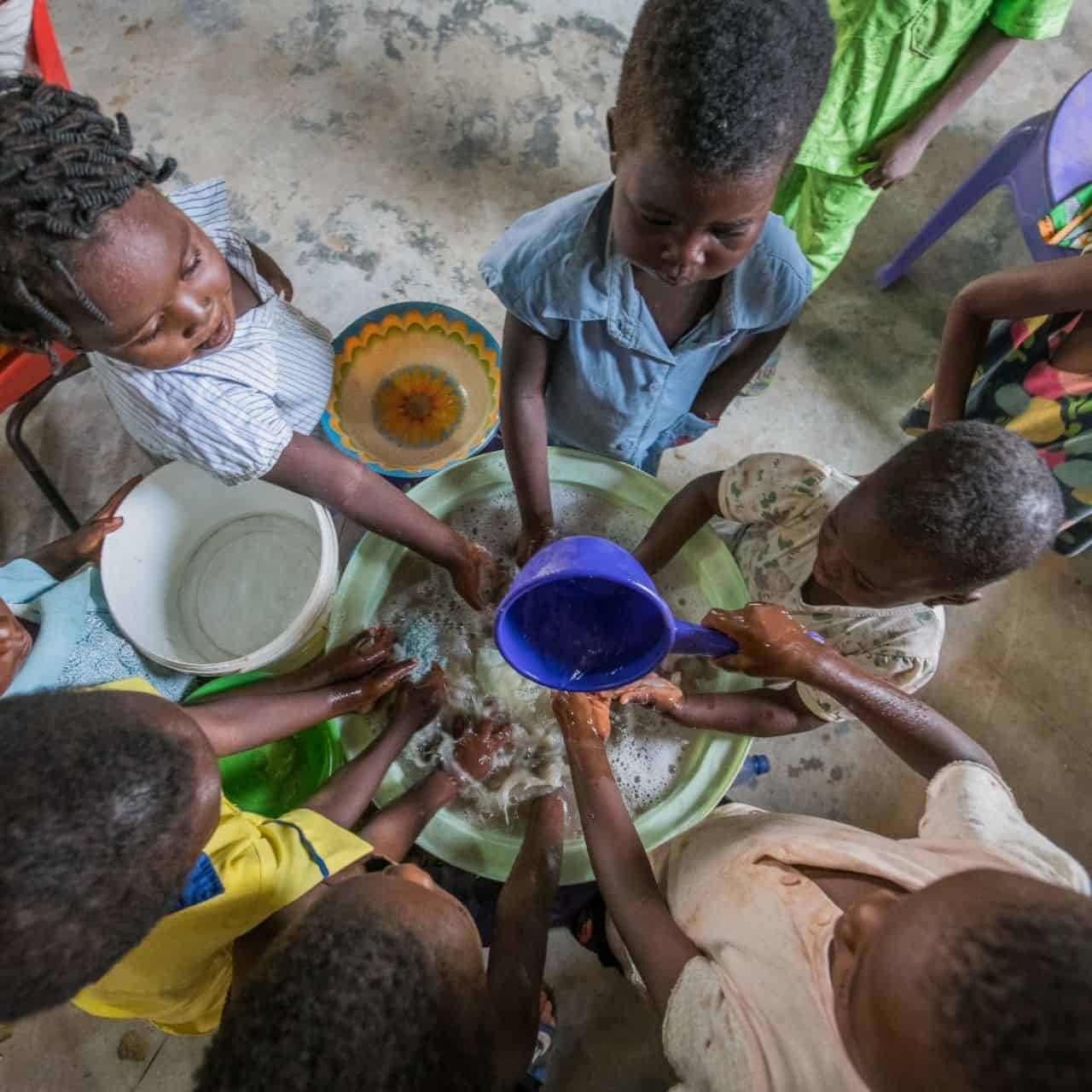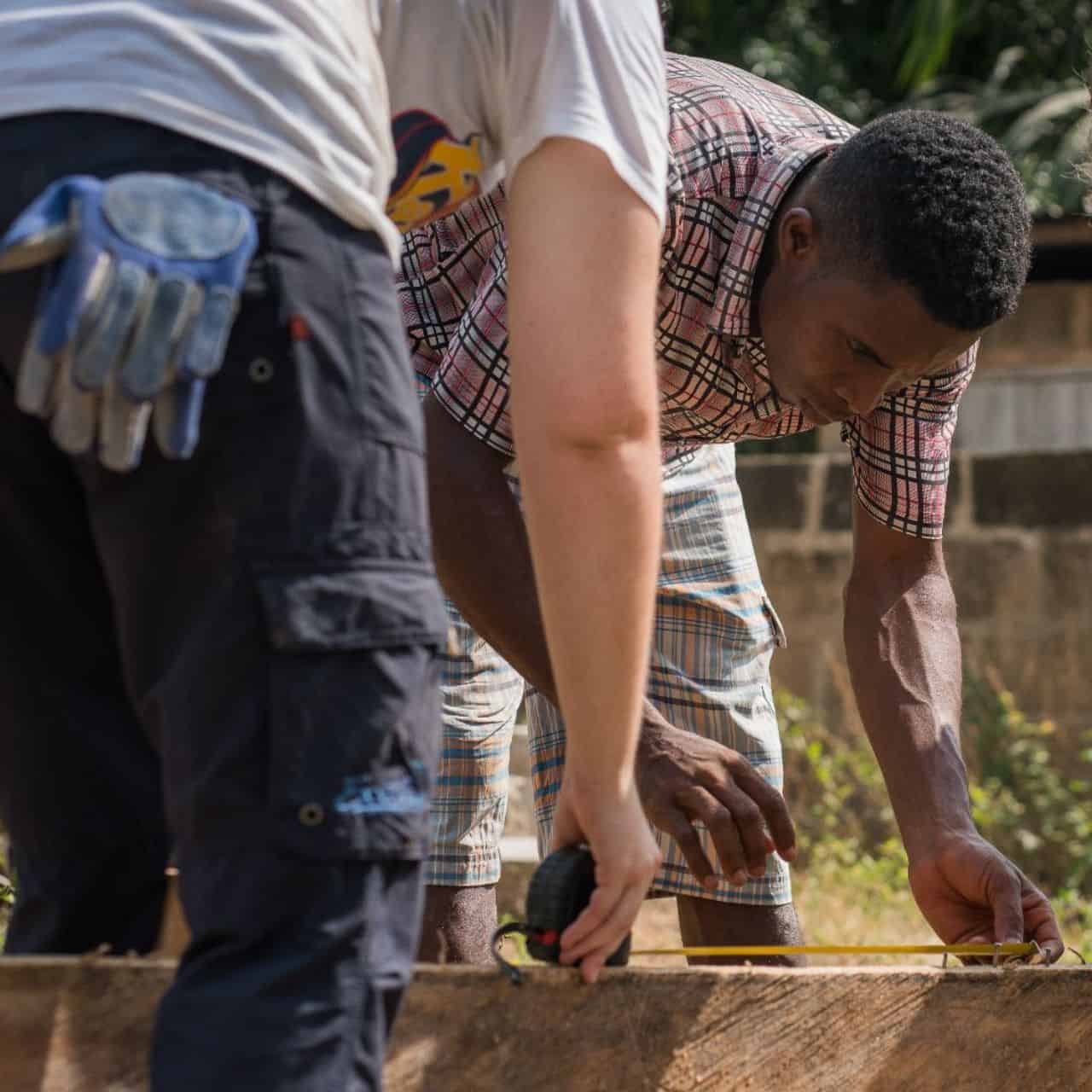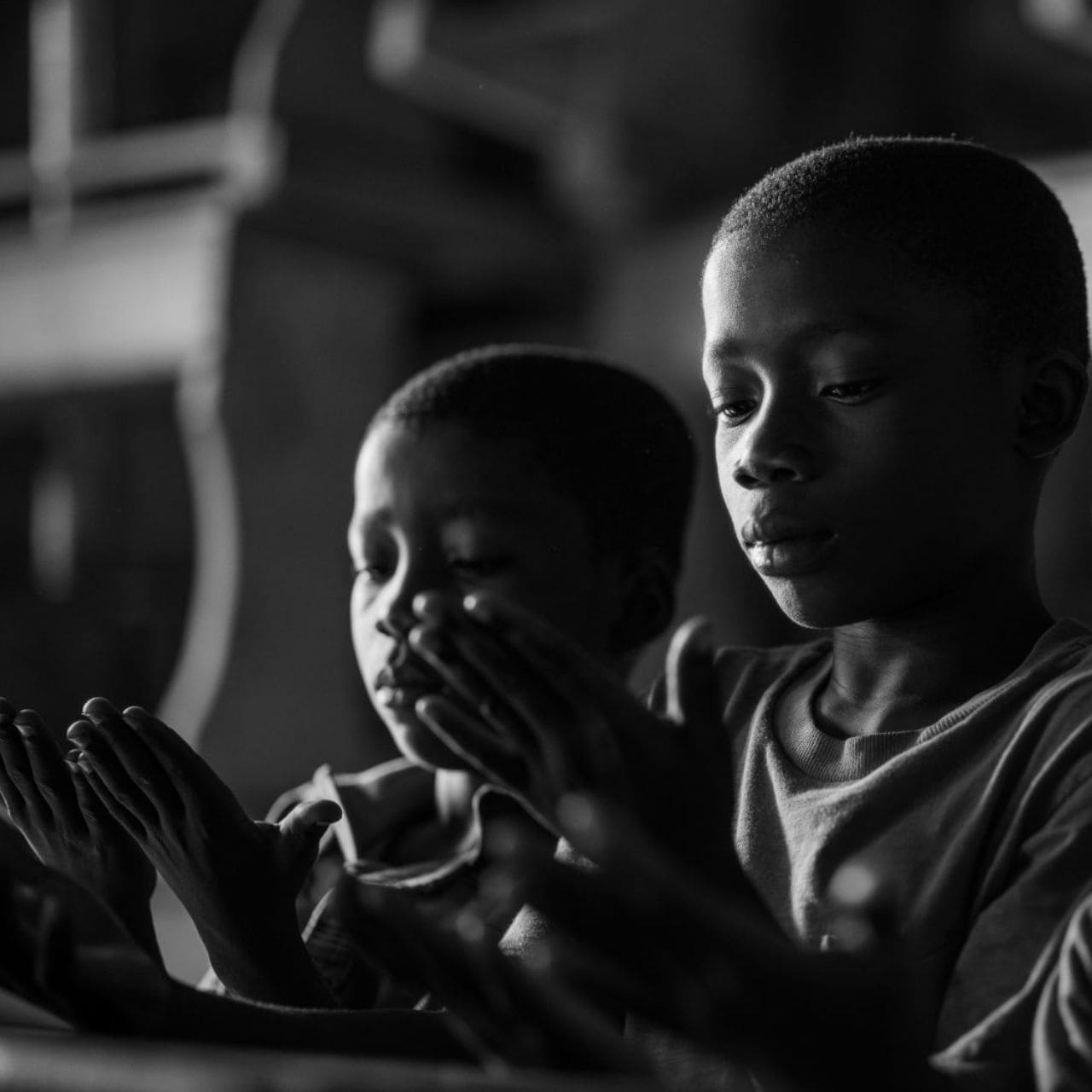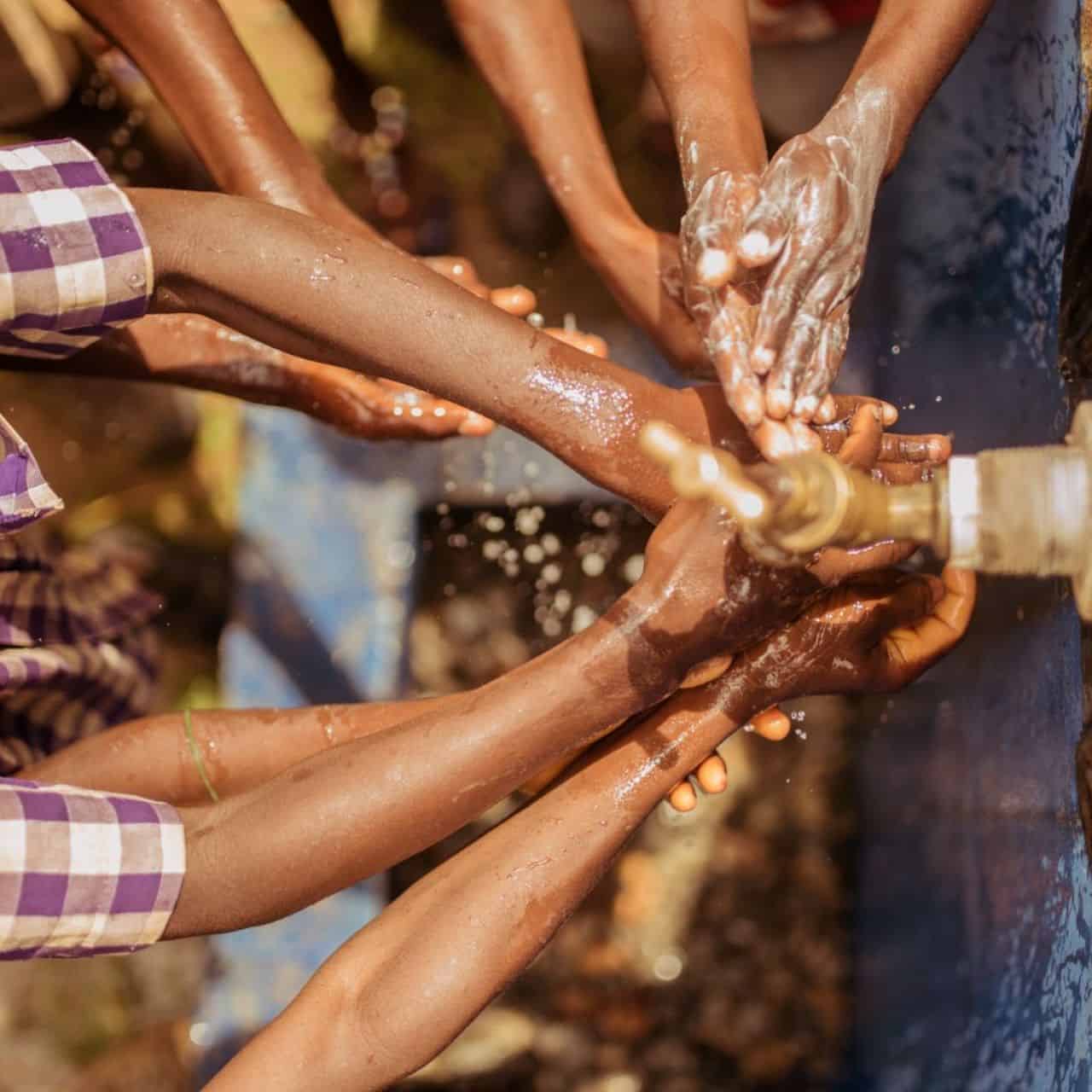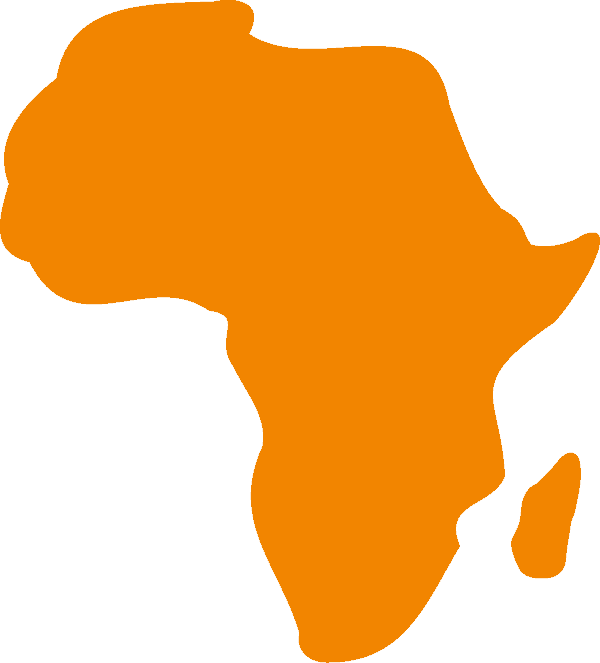To ensure the necessary change takes place to improve health and life chances, the project will be implemented within two separate phases:
Providing the Facilities
Each project will begin with the help of our local & international volunteers who work alongside our team of Ghanaian builders to build a three-toilet block within a school. These toilet blocks support sanitation as the self-composting design ensures flies entering the toilet are trapped inside the pit latrine. Their larvae develop into maggots which eat away the faeces. Polytanks (plastic water tanks) and guttering is used to collect rainwater that will support hand washing.
With the use of a veronica bucket (a plastic container designed with a tap at the bottom, see the photo to the right) each classroom will have access to water and soap. All equipment can be locally replaced and repaired increasing the longevity of the project. Soap will be provided by the school as a sign of their commitment before a school is selected.
Behaviour Change
Once the necessary facilities have been provided, an intensive supporting phase will commence over an 18-month period. This will establish new patterns of behaviour to embed hand-washing to improve sanitation. The Ghana Health Service and the Education Service will join the project at this stage, providing teachers and nurses to talk to the local school children alongside headteachers who will engage village Chiefs and Elders who will support the community-wide message and enhance commitment to the project. We provide teachers and children with promotional materials to incentivise, reward and encourage behavioural change, including stickers, pencils, pens, radios and other materials.
We also engage the community as a whole to ensure the message penetrates at every level.
We will undertake games, quizzes, drama and presentations to ensure that all exposed are informed about the issues and the need for change.
We will use ultraviolet light and specialised gels to help children understand how germs operate on their hands. We will place posters of key decision makers in the communities, typically the chief and the headmaster washing their hands and promoting the initiative.
At the end of the intensive behavioural change element, the school will then go through an assessment period which will see results from inspections every term published and a league table of schools performances available for all to see. This will encourage competition and a desire to ensure that they maintain the facilities provided and that the programme carries on long after we have finished the main programme.

